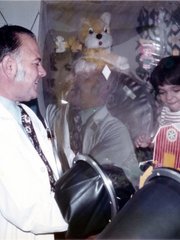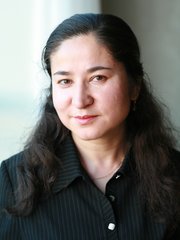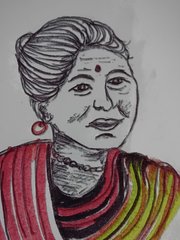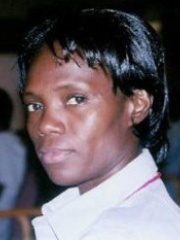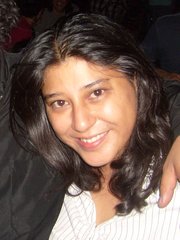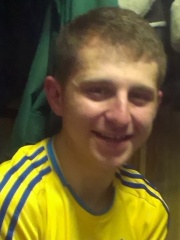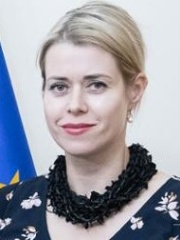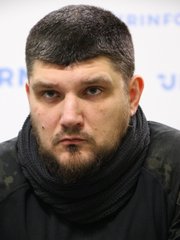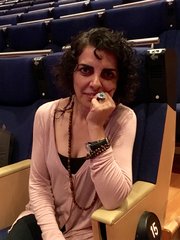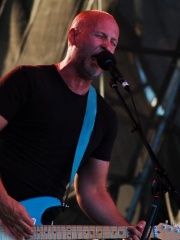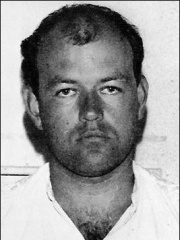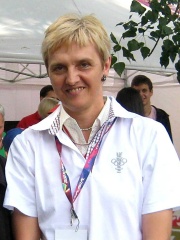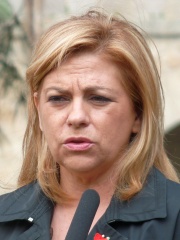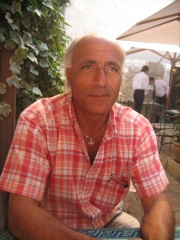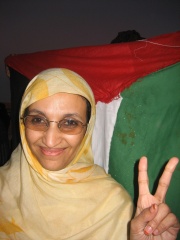SOCIAL ACTIVIST
Latifa Ibn Ziaten
1960 - Today
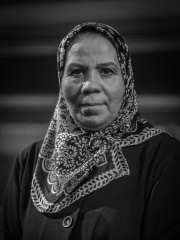
 Latifa Ibn Ziaten
Latifa Ibn Ziaten
Latifa Ibn Ziaten (Arabic: لطيفة بن زياتين born 1 January 1960 in Tétouan, Morocco), is a French-Moroccan activist. She is the mother of Imad ibn Ziaten, born in 1981, the first service member in Toulouse killed by Mohammed Merah on 11 March 2012. Read more on Wikipedia
Her biography is available in 18 different languages on Wikipedia. Latifa Ibn Ziaten is the 757th most popular social activist (down from 711th in 2024), the 212th most popular biography from Morocco (down from 207th in 2019) and the 4th most popular Moroccan Social Activist.
Memorability Metrics
Page views of Latifa Ibn Ziaten by language
Among SOCIAL ACTIVISTS
Among social activists, Latifa Ibn Ziaten ranks 757 out of 840. Before her are Karla Avelar, Killing of Neda Agha-Soltan, David Vetter, Rahile Dawut, Uma Devi Badi, and FannyAnn Eddy. After her are Susana Chávez, Ihor Kostenko, Nils Muižnieks, Veronika Tsepkalo, Denis Kapustin, and Parvin Ardalan.
Most Popular Social Activists in Wikipedia
Go to all RankingsKarla Avelar
1978 - Present
HPI: 46.07
Rank: 751
Killing of Neda Agha-Soltan
HPI: 46.06
Rank: 752
David Vetter
1971 - 1984
HPI: 46.03
Rank: 753
Rahile Dawut
1966 - Present
HPI: 45.92
Rank: 754
Uma Devi Badi
HPI: 45.89
Rank: 755
FannyAnn Eddy
1974 - 2004
HPI: 45.88
Rank: 756
Latifa Ibn Ziaten
1960 - Present
HPI: 45.87
Rank: 757
Susana Chávez
1974 - 2011
HPI: 45.80
Rank: 758
Ihor Kostenko
1991 - 2014
HPI: 45.78
Rank: 759
Nils Muižnieks
1964 - Present
HPI: 45.43
Rank: 760
Veronika Tsepkalo
1976 - Present
HPI: 45.39
Rank: 761
Denis Kapustin
1984 - Present
HPI: 45.39
Rank: 762
Parvin Ardalan
1967 - Present
HPI: 45.28
Rank: 763
Contemporaries
Among people born in 1960, Latifa Ibn Ziaten ranks 745. Before her are David Bateson, Marty Jannetty, William A. Dembski, Bob Mould, Enex Jean-Charles, and Akinobu Osako. After her are Colin Pitchfork, Urszula Kielan, Glenn Anderson, Bernard Rose, Elena Valenciano, and Francesco Romano.
Others Born in 1960
Go to all RankingsDavid Bateson
ACTOR
1960 - Present
HPI: 46.10
Rank: 739
Marty Jannetty
WRESTLER
1960 - Present
HPI: 46.07
Rank: 740
William A. Dembski
PHILOSOPHER
1960 - Present
HPI: 46.06
Rank: 741
Bob Mould
MUSICIAN
1960 - Present
HPI: 45.99
Rank: 742
Enex Jean-Charles
POLITICIAN
1960 - Present
HPI: 45.95
Rank: 743
Akinobu Osako
WRESTLER
1960 - Present
HPI: 45.90
Rank: 744
Latifa Ibn Ziaten
SOCIAL ACTIVIST
1960 - Present
HPI: 45.87
Rank: 745
Colin Pitchfork
EXTREMIST
1960 - Present
HPI: 45.80
Rank: 746
Urszula Kielan
ATHLETE
1960 - Present
HPI: 45.76
Rank: 747
Glenn Anderson
HOCKEY PLAYER
1960 - Present
HPI: 45.68
Rank: 748
Bernard Rose
FILM DIRECTOR
1960 - Present
HPI: 45.58
Rank: 749
Elena Valenciano
POLITICIAN
1960 - Present
HPI: 45.50
Rank: 750
Francesco Romano
SOCCER PLAYER
1960 - Present
HPI: 45.40
Rank: 751
In Morocco
Among people born in Morocco, Latifa Ibn Ziaten ranks 212 out of 264. Before her are Abderrahim Ouakili (1970), Abdelfettah Rhiati (1963), Soufiane Rahimi (1996), French Montana (1984), Talal El Karkouri (1976), and Abdelilah Saber (1974). After her are Smahi Triki (1967), Rachid Azzouzi (1971), Amal Ayouch (1966), Moestafa El Kabir (1988), Azzedine Ounahi (2000), and Philippe Perrin (1963).
Others born in Morocco
Go to all RankingsAbderrahim Ouakili
SOCCER PLAYER
1970 - 2023
HPI: 46.27
Rank: 206
Abdelfettah Rhiati
SOCCER PLAYER
1963 - Present
HPI: 46.12
Rank: 207
Soufiane Rahimi
SOCCER PLAYER
1996 - Present
HPI: 46.12
Rank: 208
French Montana
SINGER
1984 - Present
HPI: 46.06
Rank: 209
Talal El Karkouri
SOCCER PLAYER
1976 - Present
HPI: 45.96
Rank: 210
Abdelilah Saber
SOCCER PLAYER
1974 - Present
HPI: 45.93
Rank: 211
Latifa Ibn Ziaten
SOCIAL ACTIVIST
1960 - Present
HPI: 45.87
Rank: 212
Smahi Triki
SOCCER PLAYER
1967 - Present
HPI: 45.86
Rank: 213
Rachid Azzouzi
SOCCER PLAYER
1971 - Present
HPI: 45.76
Rank: 214
Amal Ayouch
ACTOR
1966 - Present
HPI: 45.75
Rank: 215
Moestafa El Kabir
SOCCER PLAYER
1988 - Present
HPI: 45.74
Rank: 216
Azzedine Ounahi
SOCCER PLAYER
2000 - Present
HPI: 45.60
Rank: 217
Philippe Perrin
ASTRONAUT
1963 - Present
HPI: 45.40
Rank: 218
Among SOCIAL ACTIVISTS In Morocco
Among social activists born in Morocco, Latifa Ibn Ziaten ranks 4. Before her are Mordechai Vanunu (1954), Abdallah ibn Yasin (null), and Aminatou Haidar (1966).
Mordechai Vanunu
1954 - Present
HPI: 63.57
Rank: 1
Abdallah ibn Yasin
HPI: 61.54
Rank: 2
Aminatou Haidar
1966 - Present
HPI: 54.92
Rank: 3
Latifa Ibn Ziaten
1960 - Present
HPI: 45.87
Rank: 4


